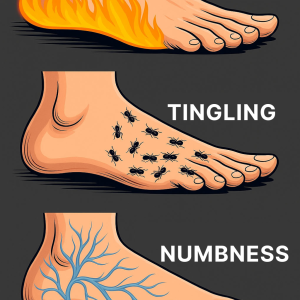
It’s a question that tends to spark debate at family gatherings: “So… is Grandpa still driving?”
On one hand, there’s the desire for independence and freedom. On the other, there are legitimate concerns that come with age. Because while some seniors are still excellent drivers, others keep getting behind the wheel even as their abilities begin to decline.
So, when should we really start asking if it’s time to stop driving?
Spoiler alert: it’s not just about the number on your ID card.
News stories that bring the issue back into focus
In recent months, several serious accidents have reignited the discussion.
At 95, a driver had a medical episode and crashed into a restaurant. At 81, another one hit a hotel. And who could forget the 83-year-old woman who, in 2024, struck a group of children in La Rochelle?
These tragedies naturally made headlines — and for good reason. They tap into a very real fear: that despite all our caution, a sudden fainting spell or a slower reflex could change everything in an instant.
But it’s important not to jump to conclusions. Not all seniors are dangerous behind the wheel. In fact, they’re statistically less likely to cause accidents than younger drivers — but when they do, the consequences are often much more serious. Why? Because older bodies are more fragile, reactions are slower, and recovery is harder.

When should you really consider slowing down?
Officially, in France, there’s no age limit for driving. A license is valid for life, unless revoked for medical or administrative reasons. But in reality, experts point to a few key thresholds:
Around age 70: time to be extra cautious.
Vision starts to weaken, hearing becomes less reliable, and reflexes slow down. At this stage, regular health checkups are strongly recommended, even though they’re not legally required.
From 75 onward: fragility sets in.
Sleep becomes more disrupted, reaction times lengthen, and handling stress while driving gets harder. These are warning signs that shouldn’t be ignored — even the most experienced drivers can begin to misjudge situations.
After 80: a crucial turning point.
According to the French Society of Geriatrics, most drivers choose to stop voluntarily between ages 79 and 82. But some continue even beyond 85 — when the risks increase significantly.
Seniors vs. young drivers: who’s actually more dangerous?
Surprisingly, statistics show that younger drivers (18–24 years old) cause more accidents than seniors. Why? They drive more often, especially at night, and tend to take more risks — speeding, texting, or just plain inexperience.
Seniors, on the other hand, drive less and are generally more careful, but their bodies are less able to handle impact. So when they do get into an accident, even a minor one, the injuries are often more severe.

A reform under discussion — but nothing has been passed yet
So, what about the law?
In France, there’s currently no requirement for seniors to undergo a medical exam to keep their driver’s license. Several proposals have been made — including one suggesting mandatory medical checks starting at age 70 — but none have been approved so far.
At the European level, however, changes are coming. Member countries will soon be allowed to require medical evaluations from age 65 when renewing a license. It won’t be mandatory, but it will give governments more flexibility to manage high-risk cases.
The real question isn’t “What age?” — it’s “Am I still fit to drive?”
Because ultimately, it’s not about the number of birthdays you’ve celebrated — it’s about being honest with yourself. Are your reflexes still sharp? Is your vision reliable? Do you still feel confident behind the wheel?
Knowing when to let go isn’t about giving up your freedom.
It’s about protecting yourself — and everyone else on the road.




